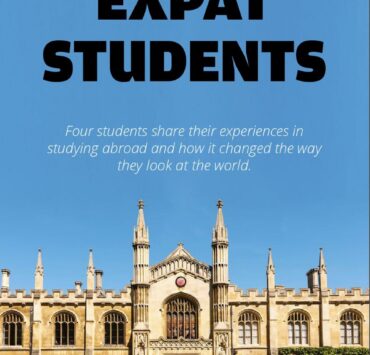This article was first published in 2015 in Issue 9th of TFEM. The author, Jomel Anthony Villanueva Gutierrez,completed his master’s degree in media and cultural studies at the University of Roehampton in southwest London. He is now the director of National Economic and Development Authority’s Public-Private Partnership Center of the Philippines and a Senior Lecturer at University of the Philippines.
I arrived in London in May 2007. The gloomy weather did not dampen my excitement to start a new chapter of my life there. I remember my first day of university. On a train going to my school, I felt myself staring out the window, unsure whether I was dreaming or not. Who would expect that someone like me who grew up in a small town in the Philippines will have the chance to study in Europe? I am grateful to my dearest Lola Gloria, who works so hard as a nurse in London, for sending me to Big Ben’s home to gain higher education.
Studying in the city was quite an experience. For international students like me, there’s a long list of things to do: museum visits, West End shows, royal events, and more. I had one year and six months of incredible university journey.
The best part was learning with students from different countries. They changed the way I look at the world. They also helped me remind myself how I should appreciate my own country and my own people.
I remember one time, my classmate, an American film graduate from New York University, suddenly asked me about Kidlat Tahimik (Eric de Guia), one of our country’s greatest artists. I was ashamed to admit that I only knew a little about him as an artist who hails from Baguio City. But she was very enthusiastic in sharing her knowledge about our own world-class Pinoy film director especially about his short films that were introduced in their film class. I became more proud of my roots right after that unexpected conversation.
The best part of studying abroad is you become independent and you work harder to sustain your school and personal needs. I took different part-time jobs to support my studies. I cleaned office toilets, served as a waiter, and worked as front desk officer in a hotel. I was also fortunate to have become one of the news correspondents of ABS-CBN’s news bureau in London. These working experiences made me realize that it’s not really what type of job you have but how you do it with dignity that matters in the world.
Studying in London also gave me a chance to travel around Europe. It was one of the best parts of this journey. I travelled in Barcelona, Zurich, Paris, Heidelberg and other European cities to expand my worldview and acquire a better global perspective. After more than four years in London, I decided to go home.
Many people asked me why I went back despite the better opportunity abroad. As someone who was privileged to earn an international education, I felt a sense of responsibility to give back, to share what I learned.
I never expected I’d work in the government when I came back to the Philippines. I joined the regional office of the Department of Social Welfare and Development in Baguio City. The agency was instrumental in realizing my dream to work at the grass roots. For more than a year, I travelled around the Cordillera Administrative Region, the home of Ibalois, Kankanaey, and other Indigenous Peoples’ groups in northern Luzon. The trips allowed me to visit the poorest communities in the country. It gave me the rare opportunity to listen to the voices of our people who live in extreme poverty. I was able to observe their way of life and witness the hardships of not having the basic needs in life.
My work in DSWD-CAR inspired me to encourage people to help the of the second poorest community in the Philippines, Tineg, Abra. Through the Filipino community in the United Kingdom, those children who live in a far-flung, mountainous area without electricity and proper clean water facility everyday, now have proper school materials and equipment. Serving those children without expecting anything in return is the best accomplishment I could ever achieve. Those kids will always remind me to appreciate even the little things that this world can offer every single day.
Today, every time I am asked again why I decided to return, I always tell them that there’s still a lot that needs to be done for the Philippines. I don’t want to sound very patriotic but it’s our fellow Filipinos still need our help. Poverty is real. It affects millions of children and households in the Philippines. All of us need to act. I also believe that if foreign educated Filipinos and those who are still studying in different countries will remember to give back in their own little humble way, their contributions will surely provide a better future for our motherland. One single selfless act will truly change a million lives.



